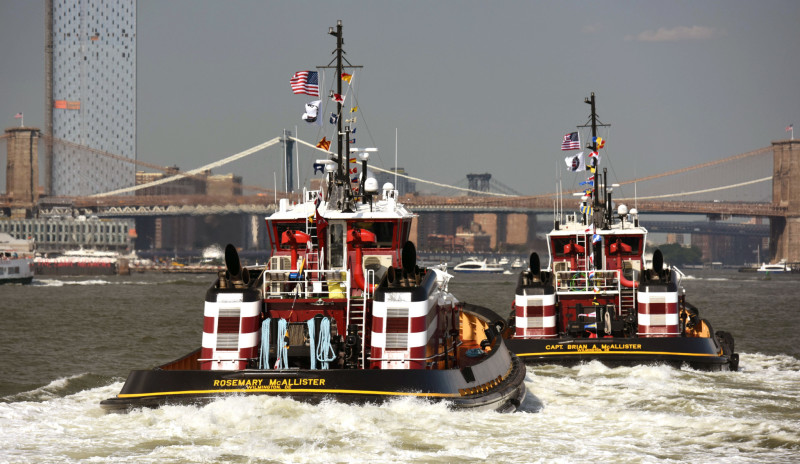Recruiters for two tug and barge companies shared strategies of how they are dealing with the stubborn labor shortage at a recent workforce forum organized by the American Waterways Operators.
Christa White, talent manager at Ingram Marine Group, and Rich Evans, corporate recruiter at McAllister Towing, said that their companies have gotten creative in developing new ways to reach job seekers via social media, job fairs, advertising, and school visits. They have had mariners speak with potential recruits and share on-the-water experiences, beefed up training programs for new hires, and revamped application processes to make it easy for the digital-savvy generation to submit job applications.
Ingram has also invited students to the company’s facilities in Paducah, Ky., to learn firsthand about jobs in welding and repairs and tour a towboat. “We hosted a high school event, invited them outside of school,” White said. “It was a small group, but they really wanted to be there.”
Evans said McAllister uses Linkedin to advertise jobs and has a public relations person who takes care of the job postings on different platforms, including Instagram and Facebook. “A lesson learned is to be careful where and when you post. We received a lot of inquiries from foreign countries.”
White said Ingram has successfully used a specific geographic strategy: develop the network you already have in the “sleepy towns without big job opportunities,” where people are already familiar with jobs on the river and where mariners already live and can speak directly about their jobs. White said Ingram can recruit locally in 17 states.
White said Ingram often relies on its own mariners to spread the word about job openings on social media and by word of mouth. Sometimes mariners are asked to join the recruiting team at job fairs, school visits, and on candidate interviews. “Getting them involved has been great,” she said. “They can connect with the job seekers.”
Evans said McAllister employs a similar strategy but also does a lot of recruiting at maritime academies and has had success at job fairs for veterans leaving the military. “When we go to Kings Point (U.S. Merchant Marine Academy), we try to take a recent graduate with us, someone who is a year or two out of graduation” and is working at McAllister. He also said the career placement staffs at maritime schools are excellent resources. They can post jobs at the school and organize a jobs event for a specific company.
Both White and Evans agreed that the industry’s work schedules of 14 days on, 14 off, or 21/21, 7/7, depending on the vessel, or 3/3 for ferries, is one of the most attractive benefits to promote to job seekers. Such schedules create a unique work-life balance not offered in other professions as they give employees extended periods of time off between vessel trips.
“For us, it’s the schedules. Work-life balance since the pandemic is front and center,” White said. “Time off makes this job great. We’re trying to tap into that more.”
Evans added: “Having 14 days off and having the option of having a business on the side if you want, that flexibility and the life-work balance is good for us.” Two weeks away is manageable to be away from family, he said, and it’s easier to get a cellphone connection and get home quickly in an emergency when working on the rivers compared to a ship at sea.
Evans said McAllister has taken steps to facilitate job applications by offering many ways for the younger, digital savvy generation to communicate, learn more about the company and submit a job application. He has put QR codes on his business cards that link to his Linked-in page, on tables at recruiting events so applicants can apply directly and without delay. He also has iPads ready at events so direct applications can be made. “People use the phone for everything,” he said.
Asked about the barriers to recruiting, White cited the lack of awareness in many parts of the country about the career paths, salaries and benefits available in the waterways industry. “We’re out of sight, out of mind,” she said.
Evans mentioned problems finding a pool of quality applicants for local jobs and the slow process for mariners to receive their federal credentials. But he said he has learned that the Coast Guard fast-tracks credentials for the maritime academies so that cadets will have their licenses to work at graduation.





